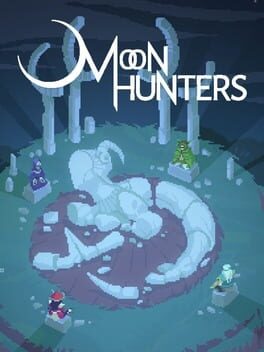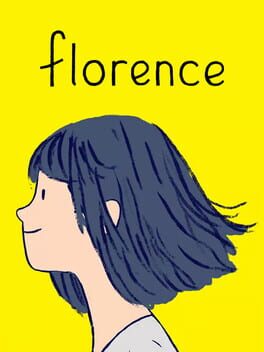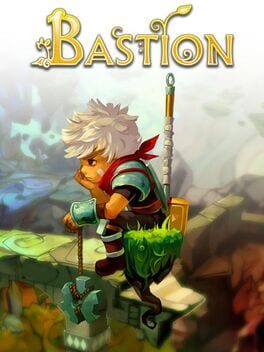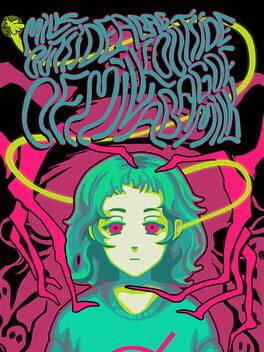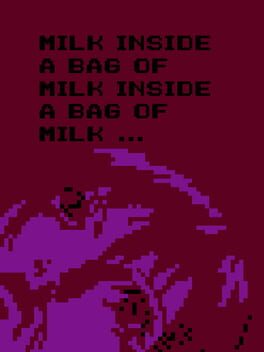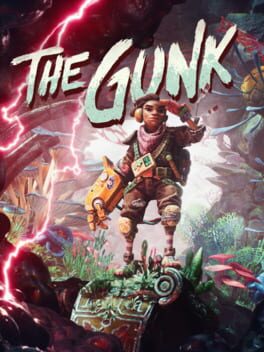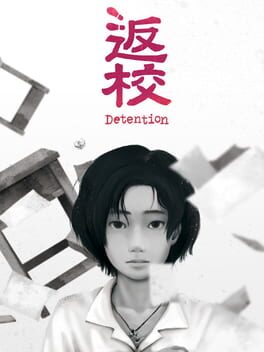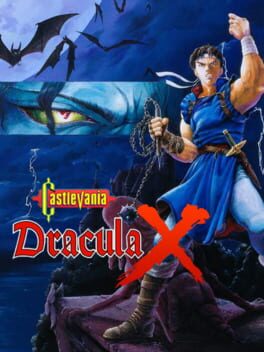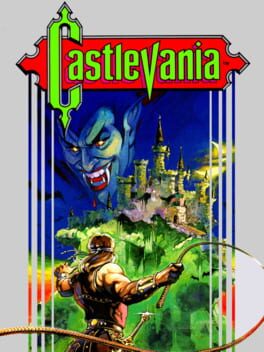Chowder
2016
I ended up playing this game with my best friend, and had a decent enough time to start, it was fun making choices with a friend, and being able to make group choices and choices of your own. I really enjoyed that aspect, but it felt like the game never really delivered on its promises.
For how many times the game wants you to play it, I expected the narrative to vary in some real way, but it felt like you were simply working to change the final outcome. I wish there were more 'bad' endings, in your attempts to change it, but it never really felt like you have real control over how the game turns out, which is disappointing. The skill checks were fun, but they don't flesh it out enough to make it rewarding.
My other problem came down to the characters and the combat. I feel like the balance in the game was all over the place, with some characters being WAY stronger than others, and all the characters I wanted to play were significantly weaker than the one my friend was playing. The combat and feel of characters was not great, with you being consistently locked in place when attacking. The button inputs also just felt very unresponsive at times, which was disappointing. I wanted to play the bard really bad, but she just felt so weak and janky to play.
It was fun at first, but the lack of balance and meaningful storytelling made it fall short.
For how many times the game wants you to play it, I expected the narrative to vary in some real way, but it felt like you were simply working to change the final outcome. I wish there were more 'bad' endings, in your attempts to change it, but it never really felt like you have real control over how the game turns out, which is disappointing. The skill checks were fun, but they don't flesh it out enough to make it rewarding.
My other problem came down to the characters and the combat. I feel like the balance in the game was all over the place, with some characters being WAY stronger than others, and all the characters I wanted to play were significantly weaker than the one my friend was playing. The combat and feel of characters was not great, with you being consistently locked in place when attacking. The button inputs also just felt very unresponsive at times, which was disappointing. I wanted to play the bard really bad, but she just felt so weak and janky to play.
It was fun at first, but the lack of balance and meaningful storytelling made it fall short.
2018
This review contains spoilers
Florence did a really great job with experimenting with different ways to turn emotional experiences to gameplay with flying colors. It's strange how satisfying a lot of the little minigames were, and how much they felt really meaningful, things like decorating your house, and the conversation puzzle pieces. It was really impressive to me. The music also worked really well in conjunction with the art, and I definitely felt what they were going for. I think this could be iterated on really well in the future and told in a better fleshed out story.
The story of Florence is solid, but I feel as though it could be better. I feel like the whole thing ends quite unceremoniously, with the two breaking up after arguing only a little bit and not really working together to patch things up. It's really unfortunate, but I also think the brevity of the game worked to its advantage.
It's quite impressive and left a reasonable impact on me but I think it had potential to be more. It lacked a true gut punch emotional resonance that I look for from a game like this.
The story of Florence is solid, but I feel as though it could be better. I feel like the whole thing ends quite unceremoniously, with the two breaking up after arguing only a little bit and not really working together to patch things up. It's really unfortunate, but I also think the brevity of the game worked to its advantage.
It's quite impressive and left a reasonable impact on me but I think it had potential to be more. It lacked a true gut punch emotional resonance that I look for from a game like this.
2011
This review contains spoilers
I was shocked to see how much DNA this game shares with Supergiant's other games and how much stuff mechanically ended up carrying over to Hades later down the line. Honestly, this game feels like such a relic from the time it came out, being pretty early on the wave of games like this, low to mid budget nice looking 'indie' games from tiny studios on XBLA.
The writing in general is good for sure, but it's not really anything super exciting. I think there are some really good touches, the attention to detail on the narration and the pure quality of voice acting as well, is really an achievement. When it comes to environment design, I can't help but feel as though it's beautiful simply to be beautiful but not really much else. It's not really something that feels super well thought out beyond looking pretty. I mean, it sell an aesthetic but I'm not sure to what end. I also don't really find the main character's model to be particularly aesthetically pleasing.
I was also really shocked to see how existential and high concept it ended up getting by the end. It was certainly interesting conceptually, but Dark Souls has done a similar thing narratively to a greater effect. I didn't find it really all that satisfying in general, but I think the music helped to bolster it tonally at the end. I think there are some really interesting pivotal moments, but I think honestly the details are the most interesting parts of the design in the game, the singer only speaking at the very end of the game, things like that were really inspired choices.
When it comes to gameplay it was certainly viscerally fun and didn't overstay its welcome, but nothing really more than that, I think the foundation is really excellent, with the upgrades, god challenges, weapon challenges, etc, and I'm SO happy they decided to iterate on it later down the line.
I also forgot to mention the soundtrack and the general soundscape of the game. I think it's overall competent and Darren Korb's work is stellar as always, I think a lot of the sound is weighed down by stock effects that I see used a lot in other stuff. It's really distracting to me, especially due to how often you hear them. I think some of the music has this problem too, I think it's the combat track iirc. The soundtrack has some really stellar songs, especially at the end, that final track is just mindblowingly great. It's made me so happy to be able to see this studio grow.
But overall, I think bastion is a lot more interesting as a piece of history to me than a game. I'm feeling positively about it, but not sure I'd really recommend it to anyone.
The writing in general is good for sure, but it's not really anything super exciting. I think there are some really good touches, the attention to detail on the narration and the pure quality of voice acting as well, is really an achievement. When it comes to environment design, I can't help but feel as though it's beautiful simply to be beautiful but not really much else. It's not really something that feels super well thought out beyond looking pretty. I mean, it sell an aesthetic but I'm not sure to what end. I also don't really find the main character's model to be particularly aesthetically pleasing.
I was also really shocked to see how existential and high concept it ended up getting by the end. It was certainly interesting conceptually, but Dark Souls has done a similar thing narratively to a greater effect. I didn't find it really all that satisfying in general, but I think the music helped to bolster it tonally at the end. I think there are some really interesting pivotal moments, but I think honestly the details are the most interesting parts of the design in the game, the singer only speaking at the very end of the game, things like that were really inspired choices.
When it comes to gameplay it was certainly viscerally fun and didn't overstay its welcome, but nothing really more than that, I think the foundation is really excellent, with the upgrades, god challenges, weapon challenges, etc, and I'm SO happy they decided to iterate on it later down the line.
I also forgot to mention the soundtrack and the general soundscape of the game. I think it's overall competent and Darren Korb's work is stellar as always, I think a lot of the sound is weighed down by stock effects that I see used a lot in other stuff. It's really distracting to me, especially due to how often you hear them. I think some of the music has this problem too, I think it's the combat track iirc. The soundtrack has some really stellar songs, especially at the end, that final track is just mindblowingly great. It's made me so happy to be able to see this studio grow.
But overall, I think bastion is a lot more interesting as a piece of history to me than a game. I'm feeling positively about it, but not sure I'd really recommend it to anyone.
Although not as kinetic or strong as the first game, Milk2 is still phenomenal, offering an experience that is scary, honest and authentic. For something that is meant to be played multiple times, I found the framing device of the room to be an element that stopped multiple playthroughs rather than encouraging it. Overall, I think this game effectively captures and clearly communicates what it's like to be stuck in a swirling, spiraling, confusing mess, and I'm happy I could listen.
2010
Alan Wake to me offered a hollow, vapid experience that reeked of 7th console generation design. Although the combat was generally pretty fun, with its snappy flow and quick pace, the story was never enough to keep me interested. The characters and tone are all over the place, never being able to decide if it wants to take itself seriously or not. It attempts to emulate Twin Peaks in that way, but ultimately fails. In many ways it feels like a different CBS show, something safe and made for cable that will register as inoffensive to the people its beamed to. It does redeem itself in the later half by playing with some interesting ideas and concepts, but it never leaned into that hard enough to redeem it for me.
Abstract and deeply moving. In the short amount of time I had with the game, I found myself deeply moved in a way that made me feel heard. The level of abstraction in the art allowed for more relatability for me, and I very much appreciate that. After finishing it, I found myself laying on the floor for about 30 minutes just thinking. Also to whoever made this game, I hope you're doing okay <3
2021
This review contains spoilers
Glad I didn't spend money on this one... It's a decent platformer with some moderately enjoyable combat sections, but there was nothing that truly grabbed me with this one. The story was alright, but it wasn't anything particularly special. There was one section (the gunk tower) that really stood out to me as beautiful and atmospheric, but I didn't get anything more out the game beyond that. The voice acting was decent even if it was a little spotty at times. The art direction was solid, even if it was pretty uncanny at times. I wish I had more to say than "eh... it was alright"
2007
Despite being enjoyable, I feel as though Portal has lost a lot of the impact that it may have had in the past. Because Portal permeates the cultural zeitgeist, I feel as though I have seen and absorbed a lot of this game via cultural osmosis. The novelty of the portal gun has worn due to my familiarity with pieces due to Portal 2, and I feel as though the humor and writing isn't as striking as it may have been in the past. Although I did chuckle at points, I found some of the humor to be somewhat tedious and uninspired due to it being copied later on from games like Borderlands 2 and Cyberpunk. It is still fun, but not necessarily a must play, even if it is an important part of gaming history.
2017
Not much to say about this one that hasn't already been said more eloquently by others. Detention is a great story about censorship, conformity and self-determination set in the backdrop of 1960s Taiwan. For me, I found detention to be deeply affecting and emotional. There were certain sections that caused me to feel a dip pit in my stomach that didn't subside until my play session ended. There are also some fascinating setpeices and wonderful use of ambiguity throughout. My only issue lies with the gameplay. Although it isn't the focus, I found a lot of the exploration and 'stealth' sections to be a little boring and tedious. They weren't super long, so it functioned as a nice excuse to sit with the atmosphere for a little longer, which I appreciated. I'm happy that because of this game, I'm now learning about the history of Taiwan and the White Scare. Detention will definitely be sticking with me for a long time.
SotN takes and blends both of the aesthetic elements of Castlevania and Dracula X to create an absolutely lovely atmosphere. The music was absolutely incredible start to end and pending time in the castle was an absolute delight beginning to end, I loved uncovering all of the secrets that the game had to offer. I love that the secrets also culminated into a wonderful twist that really tied the whole experience together for me. There were some things that really stuck out to me, however, that preventing me from loving it more than I do. My biggest complaint is the difficulty. Compared to earlier Castlevania games, I felt as though I never really had to apply myself or plan out my strategy in each room. Instead, I found myself running at things and avoiding damage when it was convenient. I think it's something that is inevitable when the game is so open-ended, but I would have loved to see some enemy designs that complimented Alucard's moveset better. Unfortunately, a lot of the bosses followed the same trend. I ended up beating the vast majority of the bosses on my first try, which led to most of them bleeding together for me, despite having incredible designs visually. Although the bosses are undertuned, I think the problem is more fundamental than that. A lot of the bosses have annoying attacks that are difficult and finnicky to reliably dodge. This led to me trying to just out damage the boss rather than actually engaging with it. I think SotN still holds up rather well, but I think there are definitely some games that improve and iterate upon the foundation that this game laid.
Dracula X was an excellent game to play right off of the heels of the original Castlevania. It improves upon the Castlevania formula while still maintaining the formula that made the original so much fun. The art, music and overall aesthetic are improved, opting for more of an arcade-y feel instead of the camp of the original (which I have mixed feelings about). My only issue lies with some of the ridiculous difficulty and crazy checkpointing toward the end. I ended up throwing up my hands at the final boss and using save states because the walk was so long and tedious. Overall a ton of fun though!
1986
Castlevania was a simple and good time! It got me to remember that I actually really enjoy 2D platformers, I just lost touch with them. The music was fantastic was the big standout for the game. The visual aesthetic was great at most points, but missed sometimes. I enjoyed the level design as well, honing my skills to be able to clear a stage was satisfying and rewarding, even if there were some annoying and unfair sections. The checkpointing was the standout for the game, however. It made me so happy to see actual checkpoints in an NES game. It made it much more palatable while maintaining the difficulty. Overall fun time!
2020
This review contains spoilers
Paradise Killer was such a big surprise for me. I went in expecting a solid indie game with decent writing and got so much more than that. The worldbuilding is definitely the thing that stands out more than anything else in this experience. It's obvious that everything was so well thought out and that they had a strong internal source book to keep everything consistent. Because of this, it was so easy for me to stay engaged and become invested in the underlying mystery. Having two avenues of knowledge (the murder mystery and the larger world) kept me super engaged. In addition, the characters were simple yet fantastic, each and every one of them were engaging in their own way, and I found myself caring for Akiko more than I care to admit by the end. The ending also hit me way harder than I expected it to. Having to execute those who I ended up calling my friends for the sake of 'justice' was as heartbreaking as it was shocking. The other thing that stuck out to me about the ending was that nothing actually ended up changing about the system by the end. The system is still being upheld, and the slave labor that Paradise is built on will still be perpetuated and continued. Although simple, this game does have a lot to say, which I really appreciated. It was cool that the so-called V A P O R W A V E A E S T H E T I C (despite it not really feeling very vaporwave, just vaporwave adjacent) fed into the anti-authority narrative as well. The only complaint I really have with the game is the janky collection gameplay. A large portion of this game is about exploration, which I apprecate, the only issue is that a lot of exploration is thrust upon you via collectibles. Although it was fun for a while, This fell apart in two ways for me. There was one point where I felt stuck, I had to explore the island, essentially tidying up the entire map to the point where there were no collectibles in my viscinity. This took about an hour and a half, and I found it to be quite tedious. Also, it's hard to find all of the evidence on your own due to meditation not showing any of the important stuff to you. Despite that, Paradise Killer remains one of my favorites I've played in a while.
